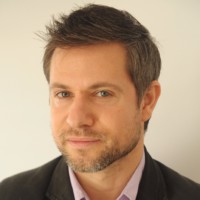My Approach
My approach is based on a fundamental respect for individual human potential. I work integratively, drawing on a range of theories and techniques whilst keeping in mind what will be most helpful to the unique person with whom I am working.
With new clients I begin with a clinical assessment, which facilitates the development of a tailored treatment approach. This collaborative approach meets clients' specific needs, addresses key clinical issues, and promotes the effectiveness of the therapy. A thorough clinical assessment is holistic, can take more than one session, and covers the features of the clinical problem(s) in detail, how these problems impact your life, the development of these problems, a general history of your life, an understanding of your current lifestyle and living situation, and discussion about medical health issues. Identifying your key goals for therapy is a critical part of the assessment, as it enables me to tailor the therapy to your needs.
As an integrative relational Psychotherapist, I make use of psychodynamic, existential and person-centred approaches to psychotherapy. My person-centred therapeutic stance is the basis for our therapeutic rapport, which builds trust and enables further, deeper work.
Psychodynamic theory is an important part of my approach, so I attend to unconscious processes such as transference and projection, and I work with the individual's structure of psychic defences. I use dream analysis where appropriate to facilitate insight into unconscious processes. My focus of therapeutic work is based mainly in the ‘here and now' - looking at how your psychological issues show up in your daily life - but this is based on an understanding of your personal history, so taking a thorough history is also crucial to my approach.
When appropriate, I make use of Gestalt therapy techniques such as chair work, or analysis of body language and posture, if you are open to using such techniques. Cognitive-behavioural therapy (CBT) is an important part of my therapeutic integration, as it address many of the problems that keep clients stuck, often in problems that they fully understand and yet feel powerless to change. CBT can be an extremely powerful tool for achieving change. I also use a technique called Focusing, in cases where the client has little insight into their problems, as a way of accessing blocked emotions, thoughts, and feelings, which can then be discussed during therapy.
I work with
- Individuals
- Private healthcare referrals
Special Interests
Like all UKCP registered psychotherapists and psychotherapeutic counsellors I can work with a wide range of issues, but here are some areas in which I have a special interest or additional experience.
Types of Therapies Offered
- Integrative Psychotherapist
What I can help with
Types of sessions
- Face to Face - Long Term
- Face to Face - Short Term
- Online Therapy
- Telephone Therapy
London Office
Maida ValeLondon W9
View Map
UKCP College
- Humanistic and Integrative Psychotherapy College (HIPC)
Bookmarks My Shortlist
All shortlisted profilesLike most websites, we use cookies. If this is okay with you, please close this message or read more about your options.


